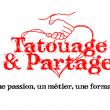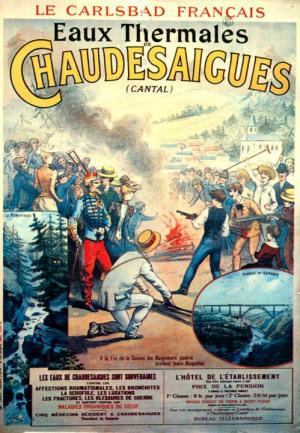The 'Mondial du Tatouage', the event that's supposed to promote tattooers in France has just come to a close while an essential question remains unanswered :
Stéphane Chaudesaigues, President of Tatouage & Partage, is wondering :why has this question not been raised ?
Is the answer disturbing to some?
Or could it be that it would shed a less than flattering light on tattooers themselves?
What is the commonality between the following careers :
Services provided by astrologers and psychic readersinteraction with the public such as event hosting, dating agenciespsychologists dealing with individuals outside of the customary therapeutic counselingsophrologistspet sitting, pet care and traininggenealogiststattooing and body piercingvalet parking servicesshoe shine service package and message carriers management of personal service machines such as coin-operated blood pressure testers, photos boothes, etc.)
9609Z is in fact the fiscal code that's been attributed to all activities of tattooing and body piercing in France.
This classification is the direct result of the tattooing profession lacking legal recognition as a trade.
Can we say that all tattooists are artists?
Can we say that all tattooists are engaged in creating tattoo art―the kind of tattoo that's the adaptation of a piece of original art such as a drawing or a painting that they have done by hand?
The honest answer is no!
Otherwise no-one would display on the tattoo shop counter and waiting lounge these catalogs that are filled with flash and illustrations. Same goes with the the flood of tattoo art on display on websites, of course. One can only get the skills of a true tattoo artist by practicing for years in order to master the various techniques of tattooing.
Don't you agree that the person who inks a tribal or celtic motif is indeed a tattooer but may not be an artist? Many tattooers celebrated today as great artists got their start inking flash that's pretty much devoid of artistic value, personnality or originality.
Tattooing requires a long apprenticeship, a transmission of precious knowledge by an experienced master. This is what Tatouage & Partage strives to do when we invite world-class tattoo artists to speak at our seminars.
This approach is similar to that of apprenticeship.
Why not claim the legal of Artistic Crafstman, thus entering this exclusive circle as its 128th member? The tattooer would sit next to the diamond cutter, the wood sculptor, the lapidary, the jeweler, the tailor, the goldsmith, etc.... Each of them is entitled to the originality of his work as they often craft unique custom pieces. The best of them even get the coveted title of "Master of Art".
All these trades are listed in the Directory of Trades.
Practicing these trades is usually restricted to those who hold a diploma that require between two and three years of training. Each trade gets to define the training course that's appropriate: training by apprenticeship, adult schooling and more.
No matter which diploma we're considering(CAP, BEP, CQP, etc...), it is important that it is recognized at the national level, that it has a syllabus defined by our profession and that it's approved by the competent government agencies.
We mustn't forget that a tattooer doesn't work on just any medium, but on the human body. It us therefore essential that his training incorporates a course about the risks associated with tattooing and about the precautions to be taken. When up to ten percent of the population has a tattoo, tattooing can no longer be seen as a underground phenomenon.
This is why we feel that it is essential that starting now, we make sure all precautions are taken in order to avoid most accidents to occur.
If we don't get proactive quickly, we could be facing critics and detractors who will not fail to make a big case of an isolated incident and demonize the entire tattooing industry ―as was the case with the association of dermatologists because the existence of tattooing as a trade wasn't legally recognized.
Once an accident occurs it will too late to lament and say: “We wish we had known about this”.
If we ever have to face litigation, proper credentials and a solid training on hygiene practices with our clients will go a long way toward establishing our credibility; certainly a lot further than a diploma in fine arts. Art school is something that would-be tattooers are encouraged to pursue on their own of course.
The public is more likely to respond positively and feel secure when dealing with professionals who have gone through training and obtained a diploma under the Institute of Occupations.
Once our occupation is recognised by the government, we can always highlight the artistic element. Tattooing could be seen as body adornment. “Jewelry is occupation that uses a variety of supplies such as precious stones and metals in order to adorn the human body”.
Press Relations : Michel Jouinot – 06 80 22 39 50Stéphane Chaudesaigues, Tatouage & Partage President – 04 71 20 20 00
http://www.tatouage-partage.com




